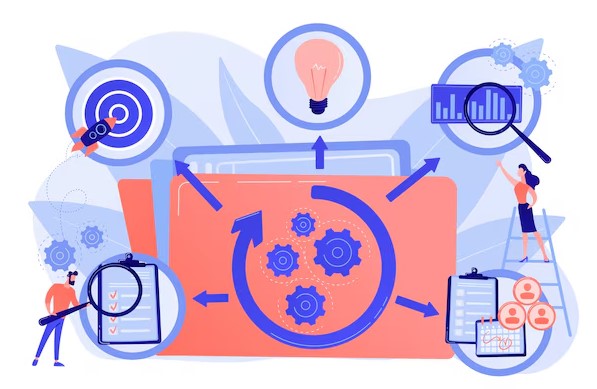Introduction
In today’s digital age, businesses are constantly looking for innovative ways to engage with their customers. One of the most popular methods is through the use of chatbots, which have become increasingly prevalent in marketing strategies. However, it is important to strike the right balance between chatbot interactions and human interactions to ensure a positive customer experience. This blog post will explore the benefits of both chatbots and human interactions in marketing and provide insights on how to find the perfect equilibrium.
The Rise of Chatbots
Chatbots have gained significant popularity in recent years due to their ability to provide immediate and personalized responses to customer queries. These AI-powered virtual assistants are available 24/7 and can handle a large volume of inquiries simultaneously. This efficiency makes chatbots a cost-effective solution for businesses, as they can reduce the need for a large customer support team.
The Benefits of Chatbots
1. Instantaneous Responses: Chatbots can provide immediate responses to customer queries, eliminating the need for customers to wait for a human representative. This instant gratification enhances the overall customer experience and increases customer satisfaction.
2. Personalization: Chatbots can be programmed to collect and analyze customer data, allowing them to provide personalized recommendations and suggestions. This level of personalization can help businesses create a more tailored and engaging marketing experience for their customers.
3. Scalability: Unlike human representatives, chatbots can handle multiple conversations simultaneously without compromising on the quality of responses. This scalability allows businesses to efficiently manage a large volume of customer inquiries, ensuring that no query goes unanswered.
The Importance of Human Interaction
While chatbots offer numerous benefits, it is crucial not to overlook the importance of human interaction in marketing. Human representatives bring a level of empathy, emotional intelligence, and problem-solving skills that chatbots cannot replicate. Here are some reasons why human interaction is still vital:
1. Complex Queries: Chatbots may struggle to handle complex or nuanced queries that require human judgment or expertise. In such cases, customers may feel frustrated or unsatisfied with the responses provided by chatbots. Human representatives can step in to provide more detailed and accurate information, ensuring a higher level of customer satisfaction.
2. Building Trust and Rapport: Human interaction allows for the establishment of a personal connection with customers. This connection helps build trust and rapport, making customers feel valued and understood. This emotional connection can have a significant impact on customer loyalty and brand perception.
3. Handling Emotional Situations: In certain situations, customers may be experiencing frustration, anger, or other strong emotions. Chatbots may struggle to handle these emotional situations effectively, potentially exacerbating the customer’s negative feelings. Human representatives, on the other hand, can empathize with the customer and provide appropriate support and solutions.
Finding the Right Balance
To strike the right balance between chatbot interactions and human interactions in marketing, businesses should consider the following strategies:
1. Identify the Appropriate Use Cases: Determine which types of customer inquiries are best suited for chatbot interactions and which require human intervention. Simple and frequently asked questions can be efficiently handled by chatbots, while complex or emotionally charged inquiries should be directed to human representatives.
2. Seamless Handover: Implement a system that allows for a seamless handover from chatbots to human representatives. This ensures that customers receive the most appropriate support without experiencing any disruptions in their interactions.
3. Training and Empowerment: Provide comprehensive training to human representatives to enhance their problem-solving skills and emotional intelligence. Empower them with the necessary tools and resources to handle complex queries effectively.
4. Continuous Improvement: Regularly analyze customer feedback and data to identify areas for improvement in both chatbot interactions and human interactions. Continuously refine and optimize the customer experience to ensure maximum satisfaction.
Conclusion
In the ever-evolving world of marketing, finding the right balance between chatbot interactions and human interactions is crucial. While chatbots offer efficiency and personalization, human interaction brings empathy and problem-solving skills. By understanding the benefits of both and implementing strategies to strike the perfect equilibrium, businesses can provide a positive and engaging customer experience that drives loyalty and boosts their marketing efforts.



